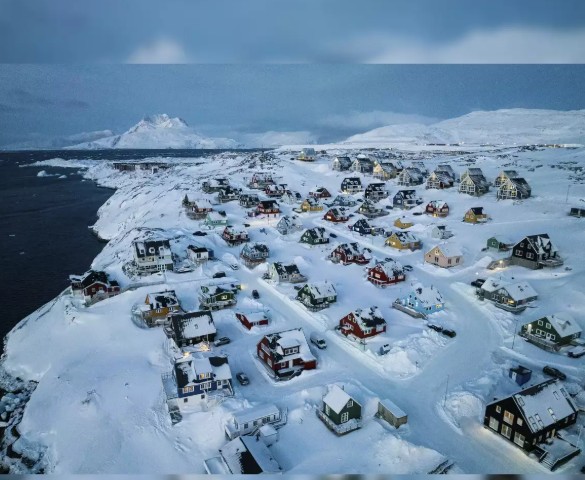In a surprising statement, Russian President Vladimir Putin has expressed concern over the United States’ ongoing interest in Greenland, suggesting that Washington’s intentions regarding the autonomous Danish island are “serious.” His comments reflect the growing geopolitical tensions in the Arctic region, as rivalries between global powers intensify.
Putin Warns of NATO’s Strategic Move in Greenland
Putin’s remarks, made in a recent press briefing, highlighted his concerns that NATO countries, including the U.S., could use Greenland as a strategic base for future military operations. The Russian president, known for his cautious and often assertive stance on territorial matters, warned that Greenland’s strategic location in the Arctic could become a pivotal point in international security.
“Let’s be clear: The United States is serious about taking over Greenland. This is not some whimsical idea,” Putin said. “NATO countries could use Greenland as a launching pad for future conflicts, particularly as the Arctic region becomes more militarized and important in the global balance of power.”
Trump’s Push for Greenland
The U.S. interest in Greenland has been a topic of controversy for several years. Former President Donald Trump pushed for the U.S. to take control of the island, citing national security and the region’s growing importance in the global geopolitical landscape. While Trump’s approach to acquiring Greenland was met with skepticism by many, including the Danish government, the idea has persisted in American political circles, especially as competition in the Arctic heats up.
Greenland, an autonomous territory of Denmark, is strategically located between North America and Europe. Its proximity to both Russia and key NATO allies makes it a crucial region for military and resource exploration. The U.S. has long maintained Thule Air Base in Greenland, which is a key component of its missile defense system.
Putin’s Concerns Over Arctic Tensions
Putin’s statement about the U.S. plans reflects Russia’s growing concerns over the militarization of the Arctic. As climate change melts ice in the region, new shipping routes and untapped natural resources are becoming increasingly accessible, making the Arctic a strategic area for global powers. Russia, which holds significant territory in the Arctic, has been ramping up its military presence in the region, building new bases and deploying advanced weapons systems.
Putin warned that the potential U.S. takeover of Greenland could lead to an arms race in the region, with both NATO and Russia competing for control of the Arctic’s vital resources and trade routes. He cautioned that this new competition could spark further tensions and deepen divides between global powers.
A Geopolitical Flashpoint
The Arctic has become an emerging geopolitical flashpoint as global powers vie for influence. Russia has long considered the Arctic as part of its sphere of influence, while the U.S. and NATO see the region as vital for national security and economic opportunity. In recent years, both Russia and NATO countries have made significant investments in military infrastructure and research in the Arctic, signaling the region’s growing importance.
The U.S. and Denmark have a complicated relationship when it comes to Greenland. Denmark has rejected Trump’s proposal to buy the island, calling it an “absurd” idea. However, both nations continue to collaborate in areas of mutual interest, including defense and Arctic exploration.
Future Implications for the Arctic
As the U.S. continues to assert its interests in Greenland, and Russia remains vigilant over NATO’s presence in the Arctic, tensions in the region are expected to rise. The future of Greenland, with its vast natural resources and strategic location, will likely remain a point of contention in global geopolitics.
Both Moscow and Washington will likely continue to compete for influence in the region, with the Arctic becoming an increasingly important battleground for global power dynamics in the years to come.



